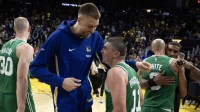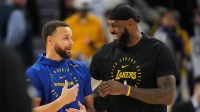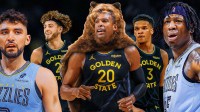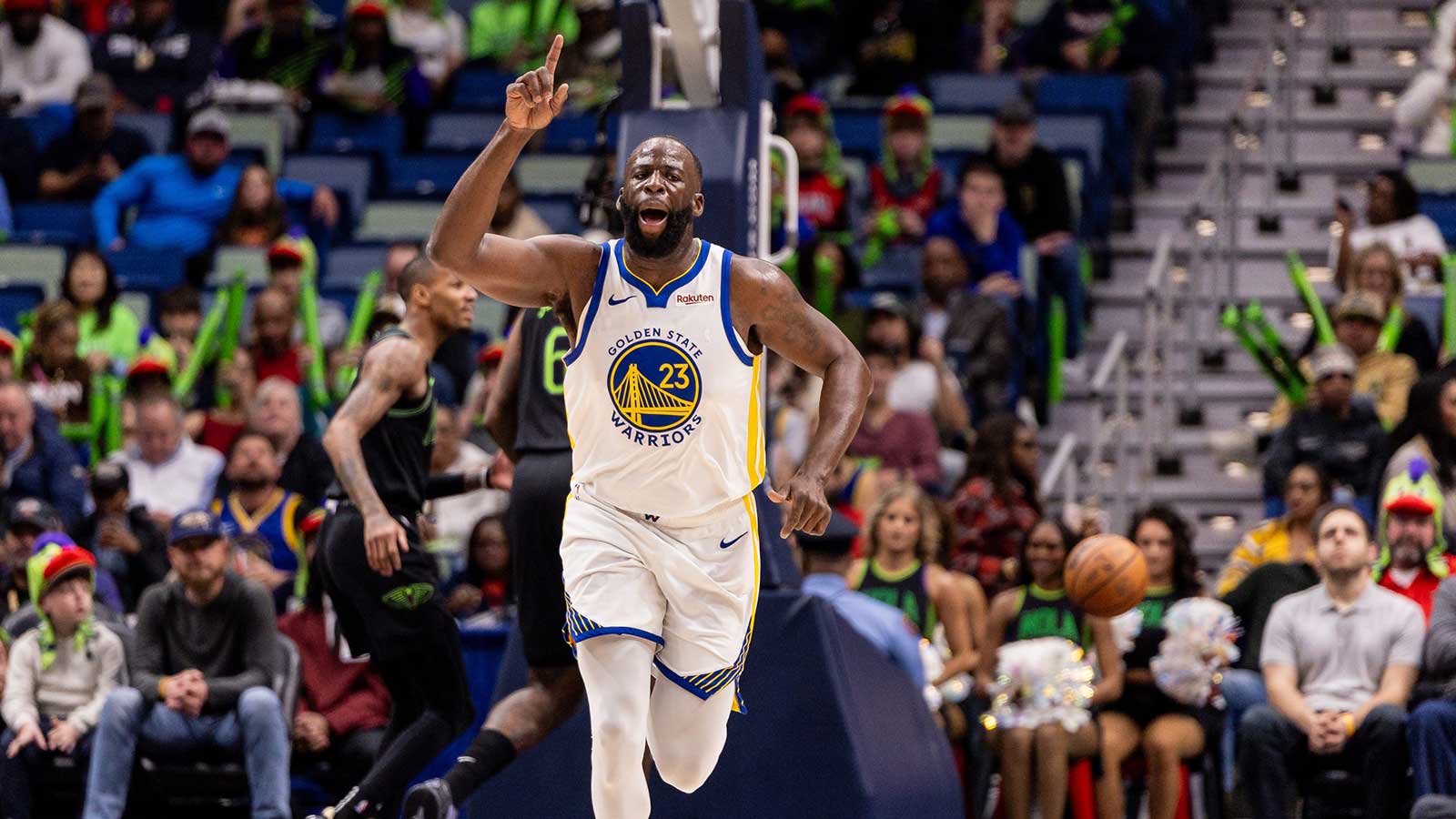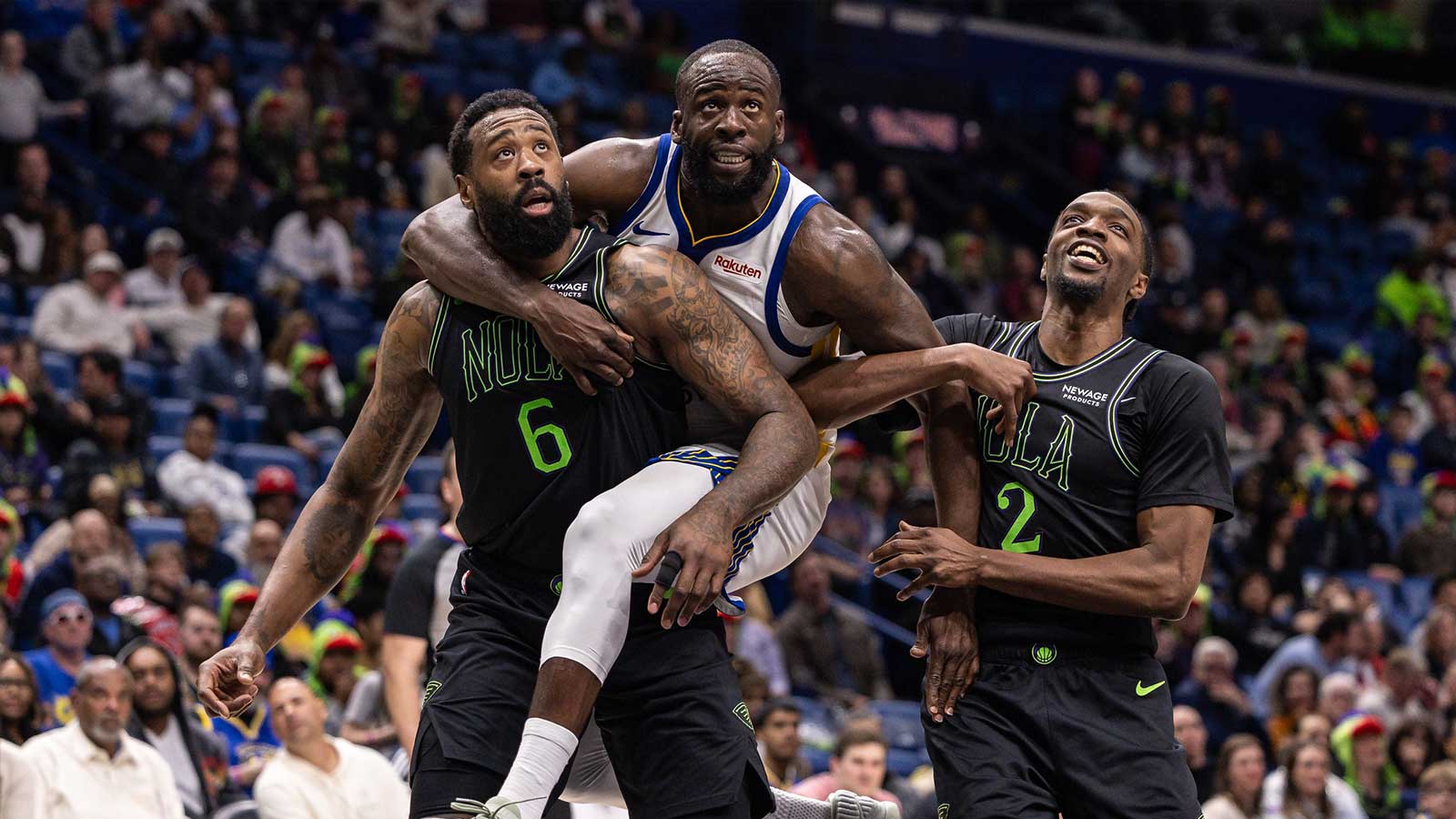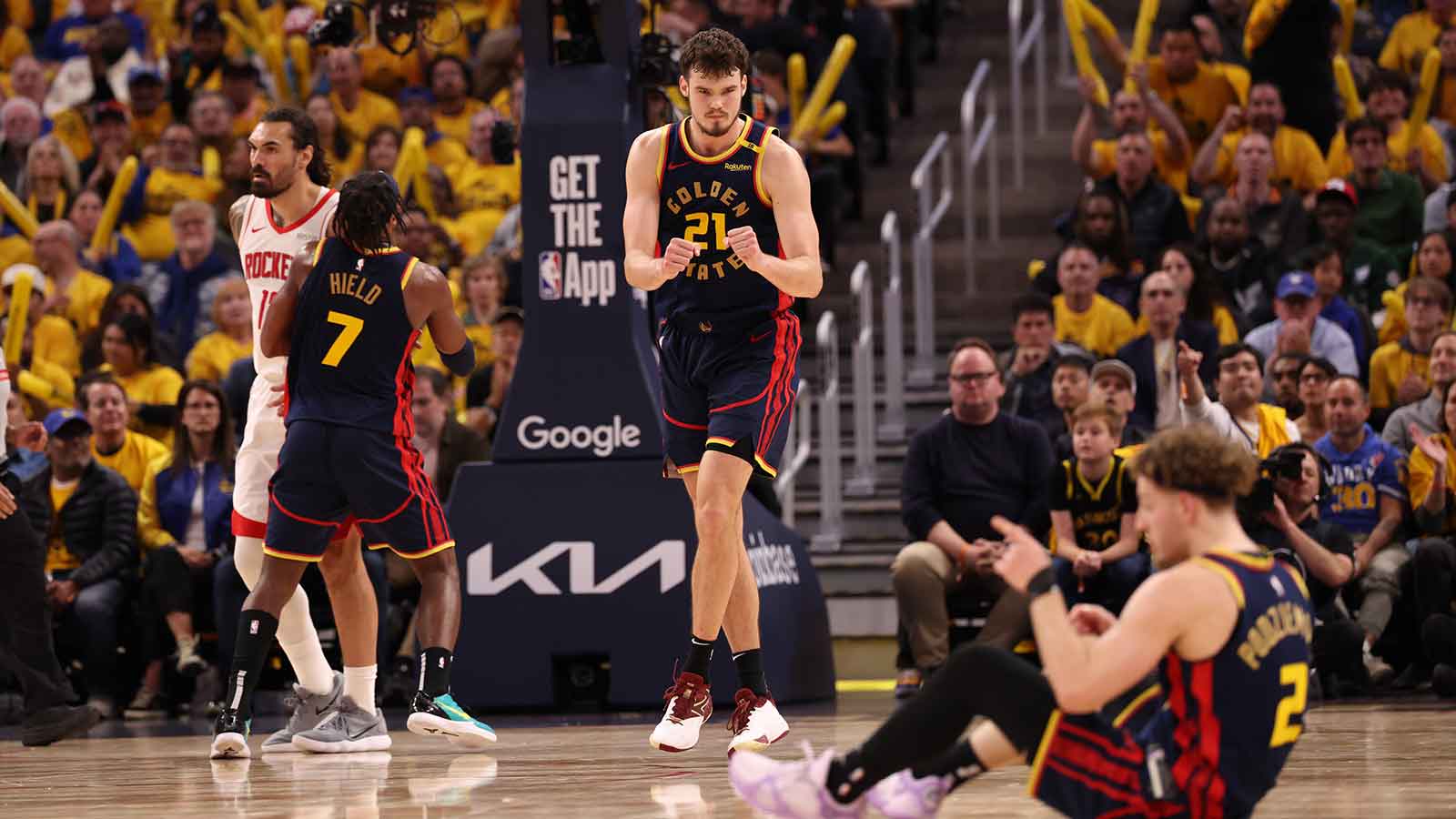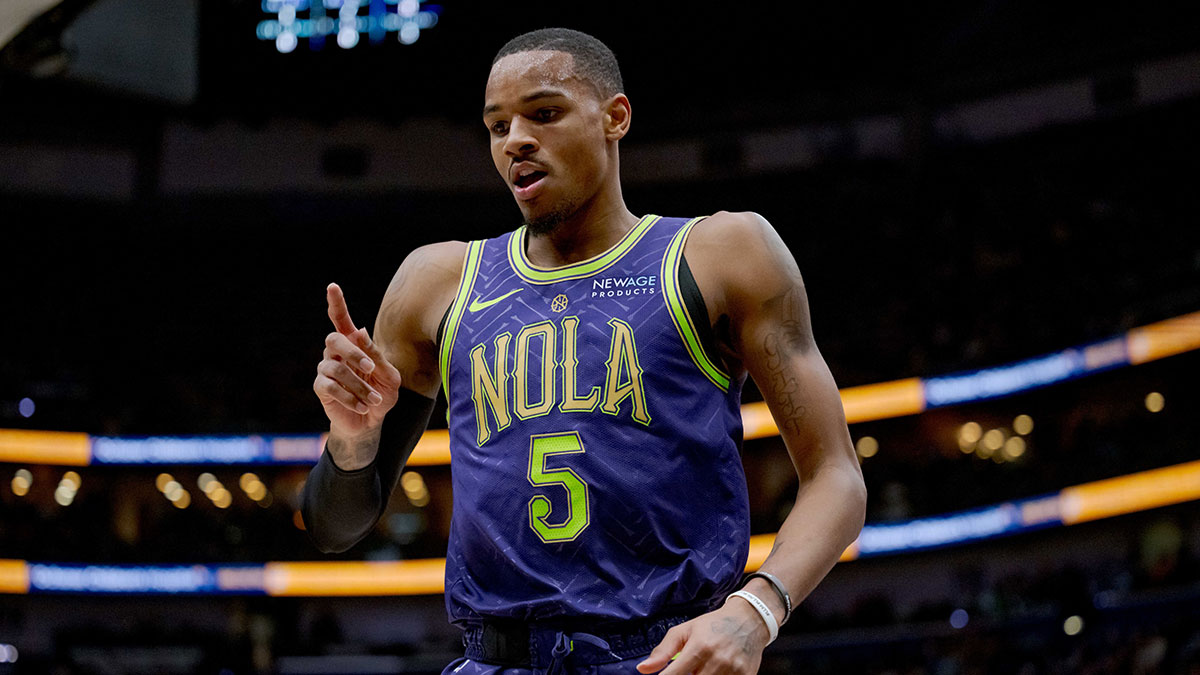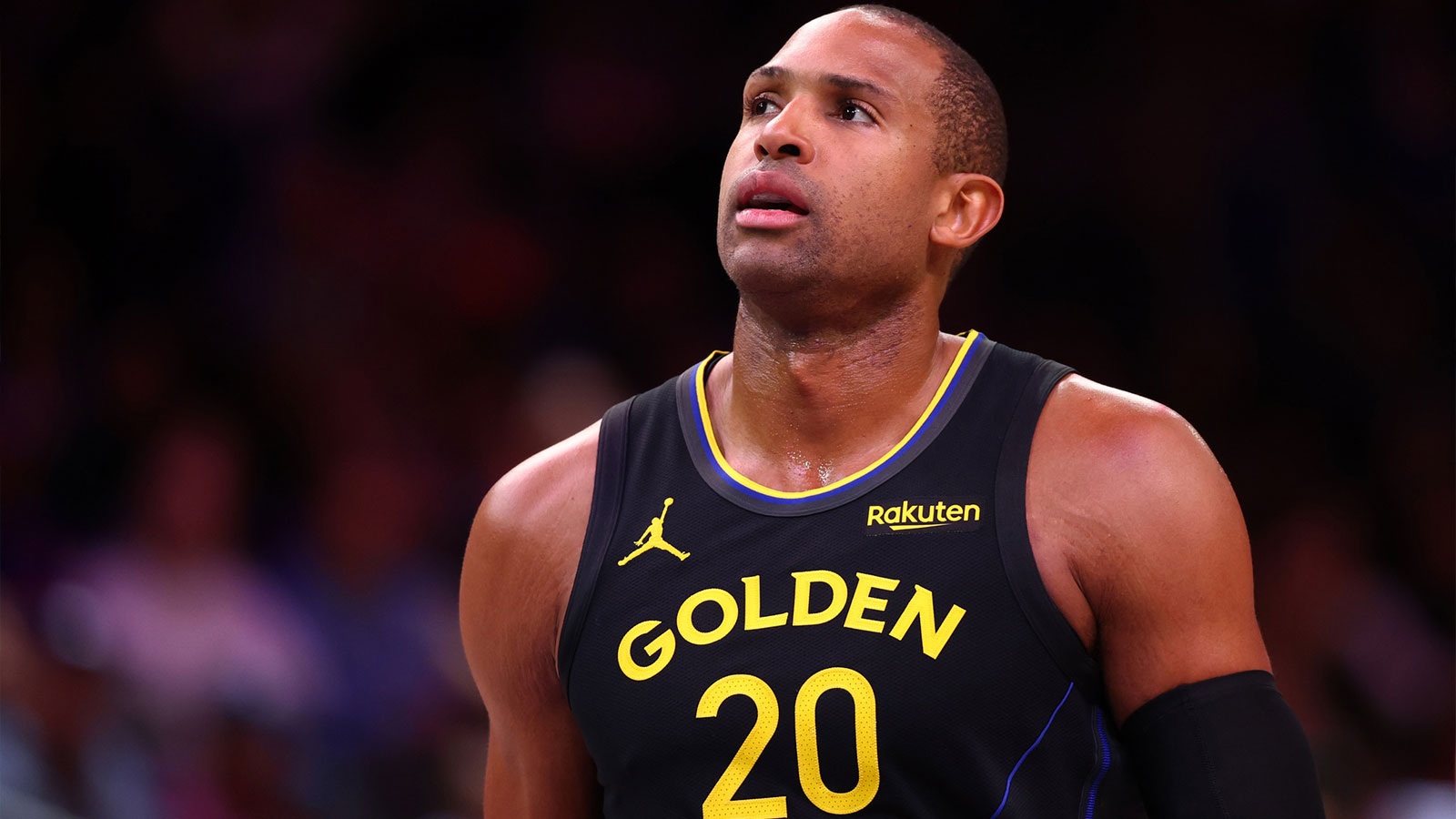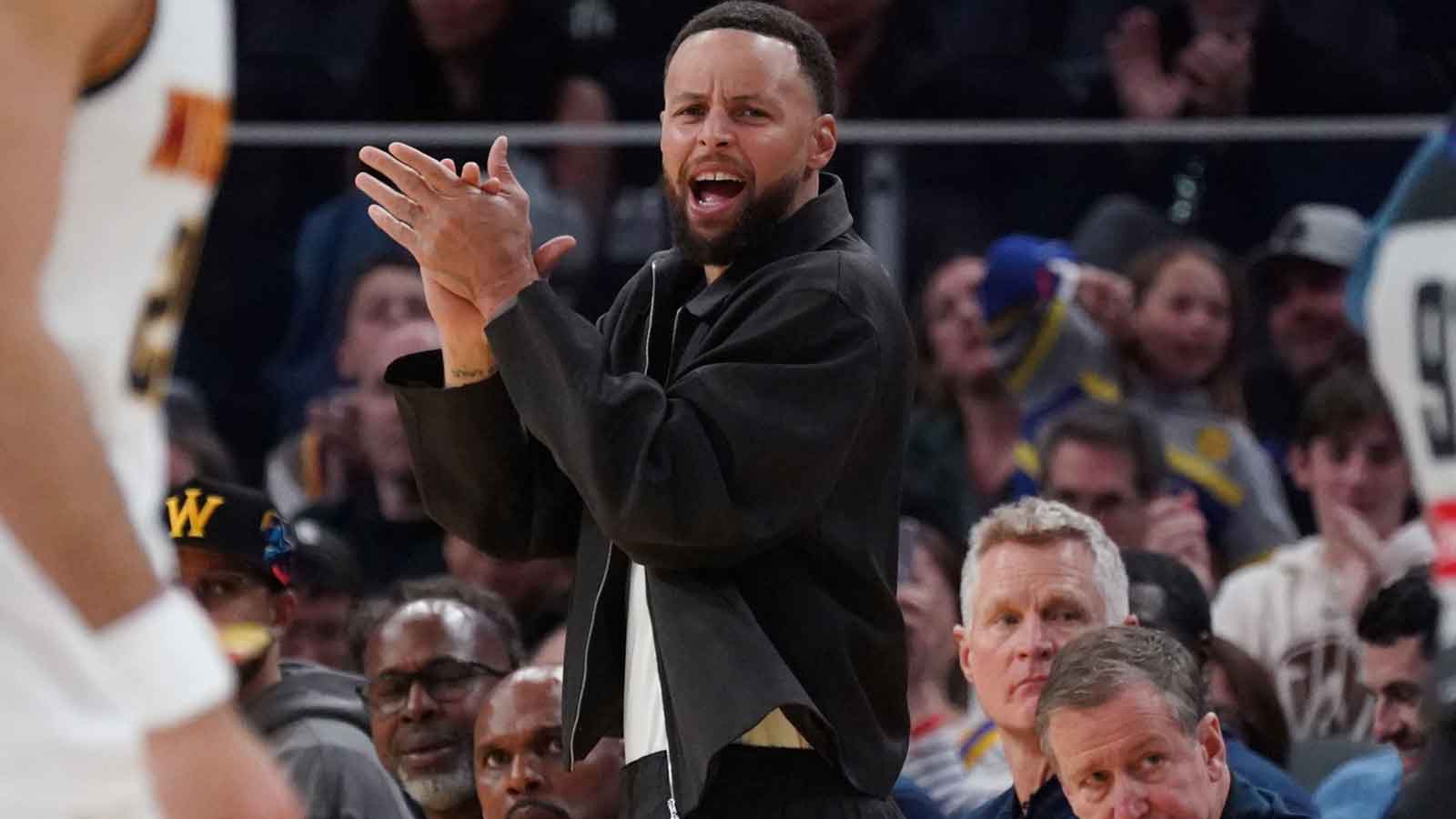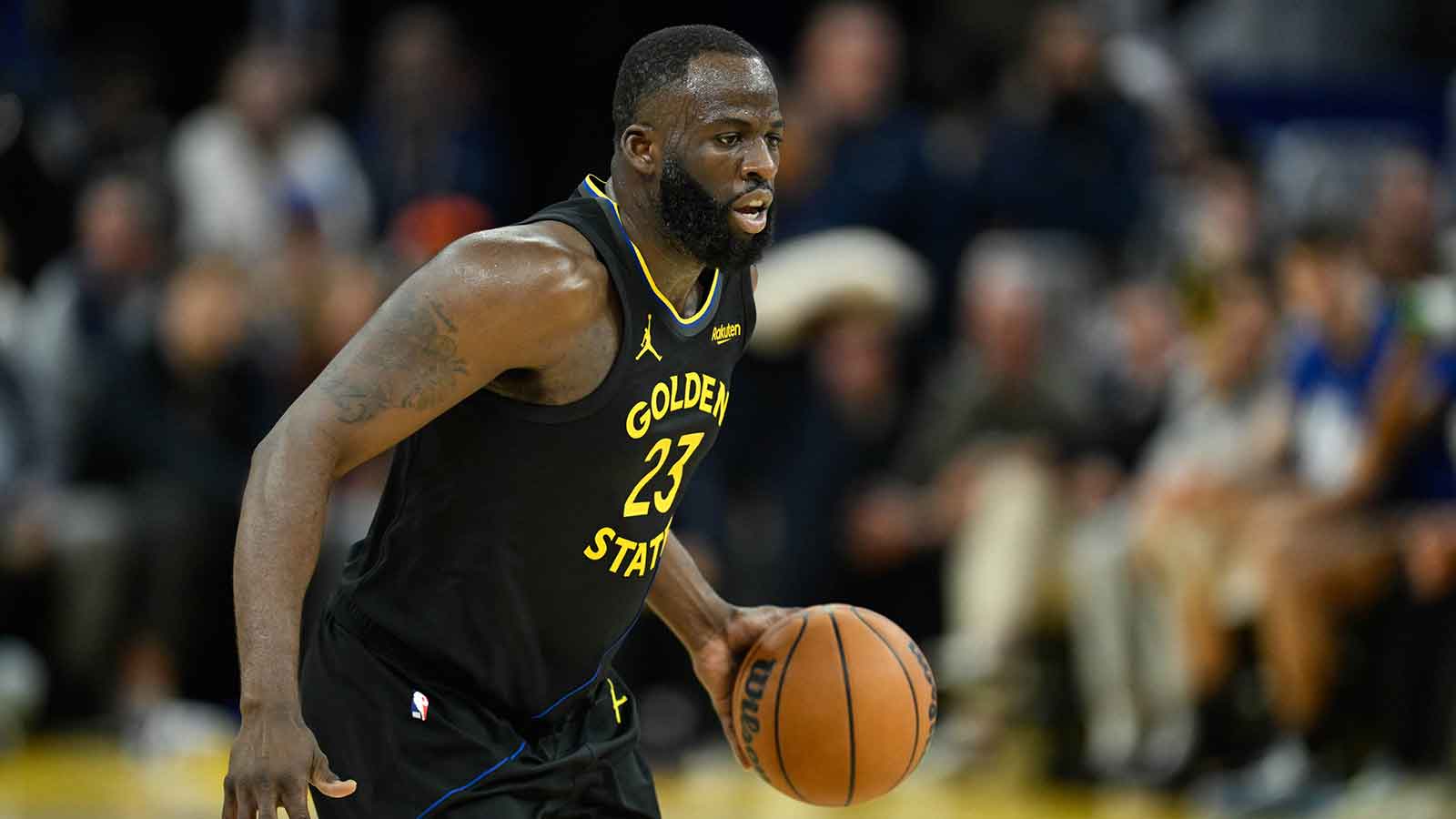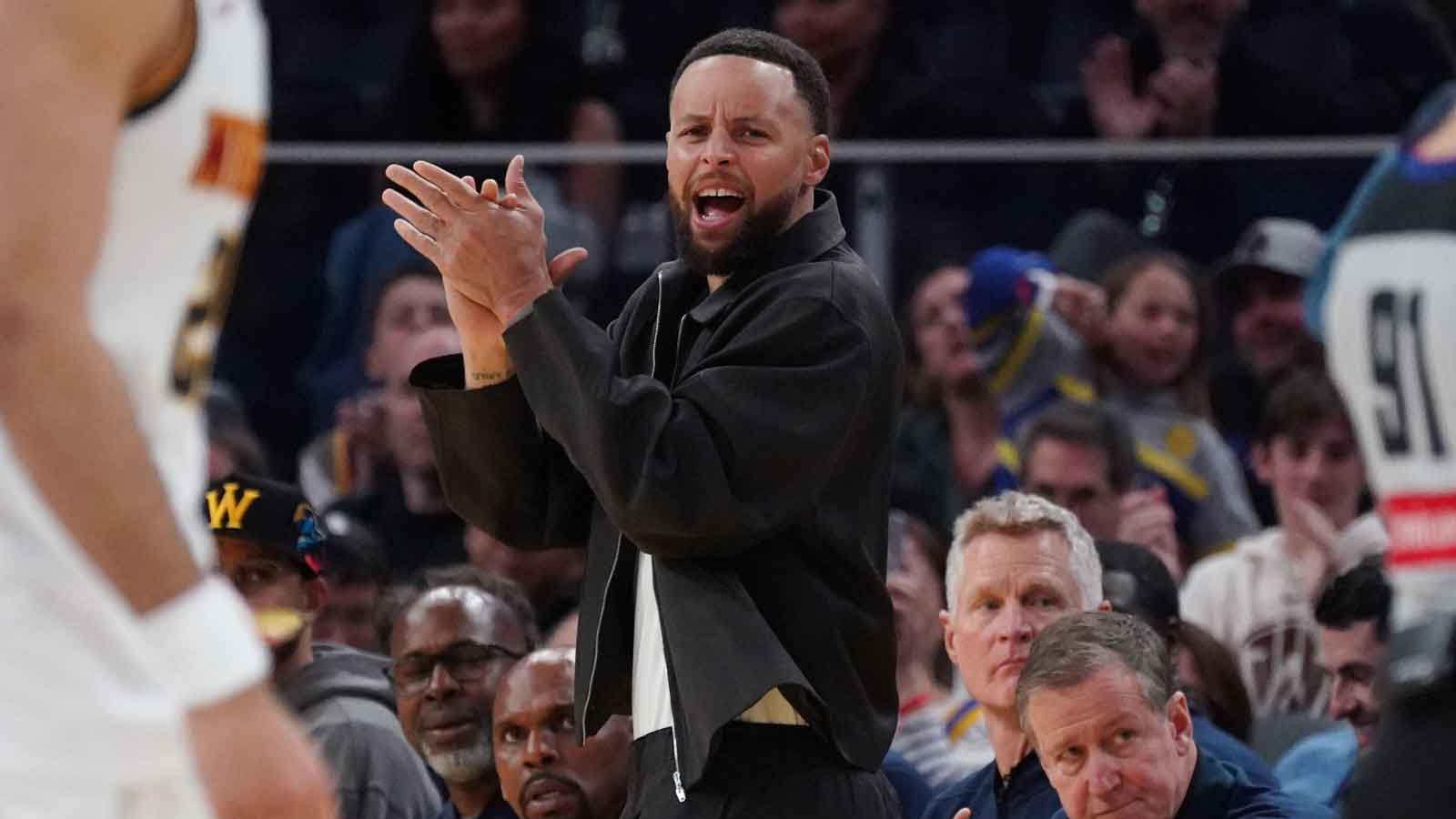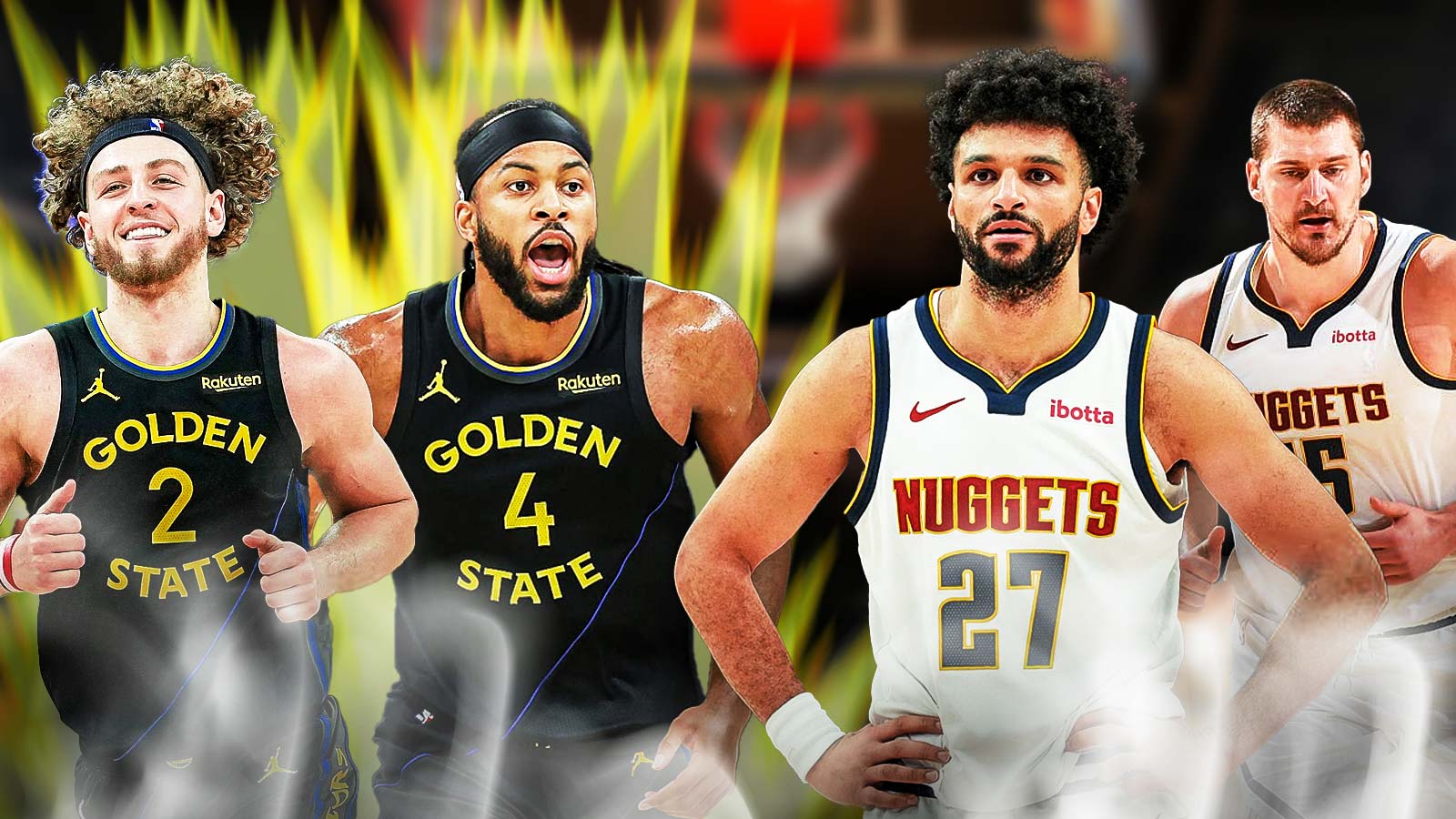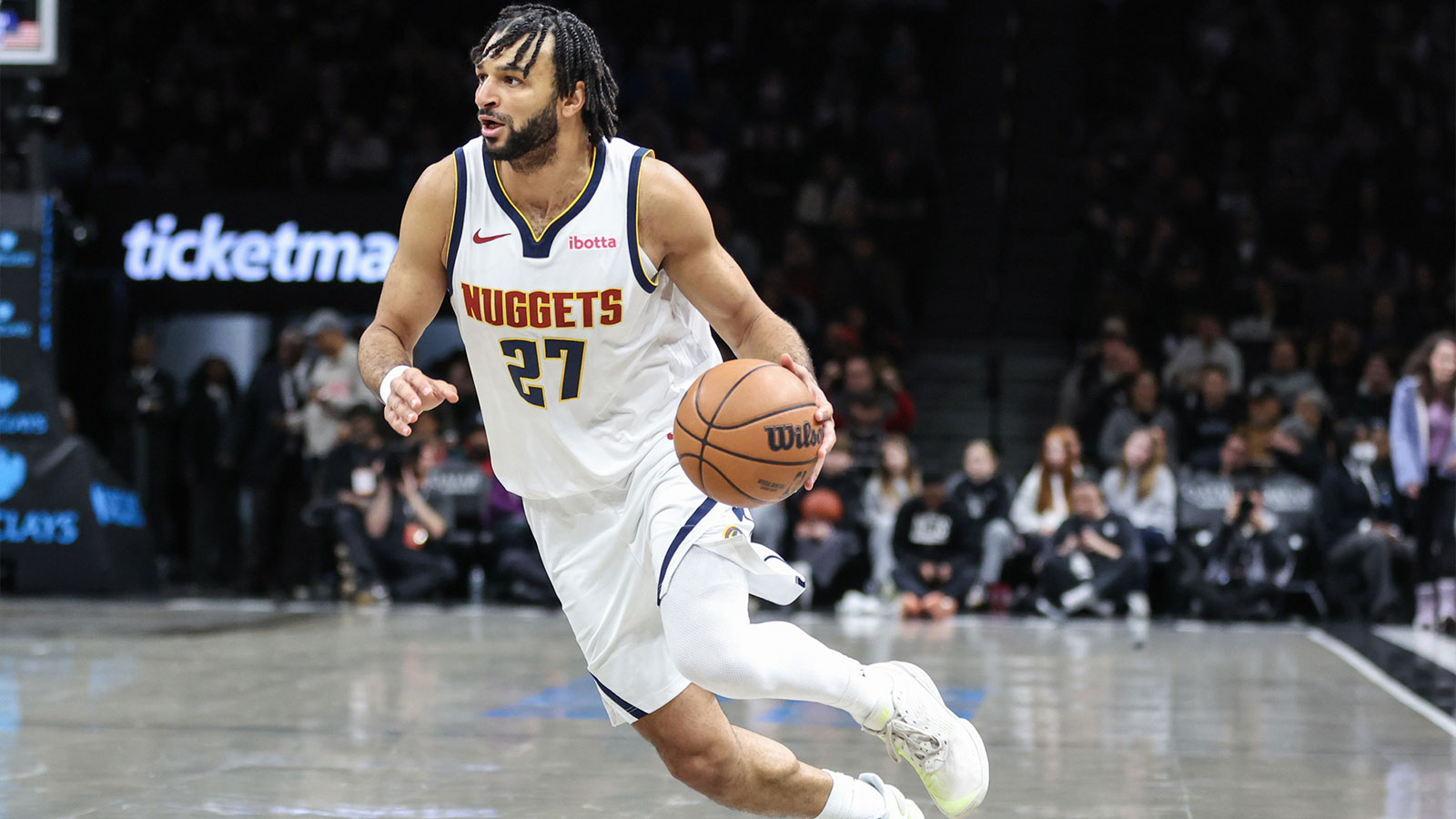The best basketball of his career wasn't just indispensable to the Golden State Warriors' championship run, but also earned Kevon Looney the league-wide respect he has deserved ever since emerging as a key cog for basketball's latest dynasty a few years ago.
He obviously isn't Stephen Curry, Draymond Green or Klay Thompson, and sits a perch below versatile wings like Andre Iguodala and Andrew Wiggins in Golden State's historical and current pecking order. But Looney's impact as a dominant rebounder, scheme-shifting defender and canny screen-setter has loomed extremely large to the Warriors‘ ongoing success regardless. Finally, other teams are taking notice.
The Sacramento Kings, now coached by longtime Golden State defensive whiz Mike Brown, and Charlotte Hornets have reportedly emerged as potential suitors for Looney once free agency tips off next week. If the three-time champion has his way, though, he'll be back in The Bay for the foreseeable future—as long as the Warriors pay him close to market value, that is.
“Always want to be back here,” Looney told Anthony Slater of The Athletic. “I’ve been here my whole career. But it’s a business. Never know what’s going to happen. Wait to see what my agent says about what’s going on around the league, what’s going on with me.”
Golden State has full Bird Rights on Looney. The only financial reason he wouldn't return is if Looney commands so much money from a competing team that owner Joe Lacob, steward of a league-record $350 million payroll last season, gets queasy about the final amount of a 2022-23 luxury tax bill bound to make more spending history.
The Warriors have always paid up to retain incumbents since Lacob and Bob Myers took over. Every indication suggests they plan to do the same this summer after winning a fourth title in eight seasons. But with Gary Payton II and Otto Porter Jr. also facing free agency while Wiggins and Jordan Poole are eligible for extensions, there's at least the faint possibility of Looney getting so expensive Golden State lets him walk.
“I’d love to come back and defend what we’ve just won,” Looney said. “But you never know in this league.”
Looney signed a three-year, $14.4 million deal in July 2019 to remain with the Warriors. He clearly outplayed that modest annual salary in the playoffs and might be due for a pay bump even if he hadn't because Golden State won another ring. Pivotal as he was in the postseason, though, Looney is a much better fit with the Warriors than he is with every other team in the league.
Centers who don't space the floor to the arc or draw defenders to the paint as a rim-rolling lob threat have increasingly low utility in the modern NBA. Looney's improved and long underrated ability to switch onto guards and wings without negative recourse somewhat compensates for those deficiencies, but is likely not enough for him to function as a reliable net positive outside Golden State's unique offensive attack.
Jordan Poole is due for a big payday and this is how the Warriors can pull it off 🤑https://t.co/c76cRqiXxG
— Warriors Nation (@WarriorNationCP) June 22, 2022
Looney shot 70.1% from the field during the playoffs while sharing the floor with Curry, per NBA.com/stats, taking full advantage of extra time and space to load up and pump fake at the rim against scrambling defenses. That number dipped all the way to 52.4% when Curry was on the bench, further confirmation of an eye test that already makes it clear just how much he benefits from the mass defensive attention paid to basketball's best offensive player.
Looney isn't the only Warrior whose offensive effectiveness hinges mostly on Curry's presence. The same dynamic certainly applies to Green. It's hardly shocking that a non-shooting small like Payton finally found his niche as a rotation player with Golden State.
Still, other teams in need of a starting center surely understand the specific strengths and weaknesses of Looney's game makes him most inherently valuable to the Warriors. Expect that knowledge to ultimately keep teams like the Hornets and Kings from zealously overpaying for Looney in free agency, leading him back to Golden State on a two or three-year contract worth $7-9 million annually.



